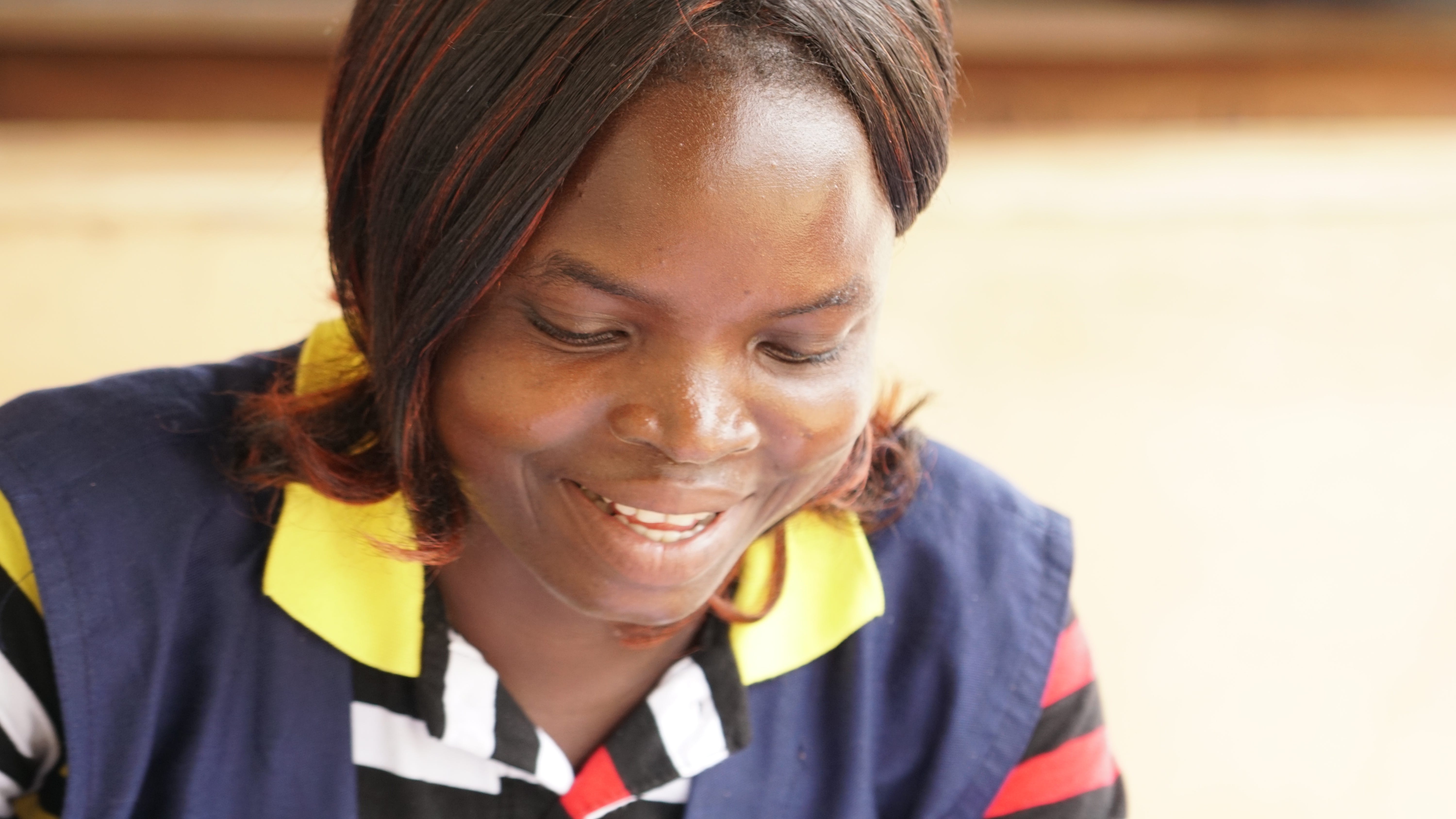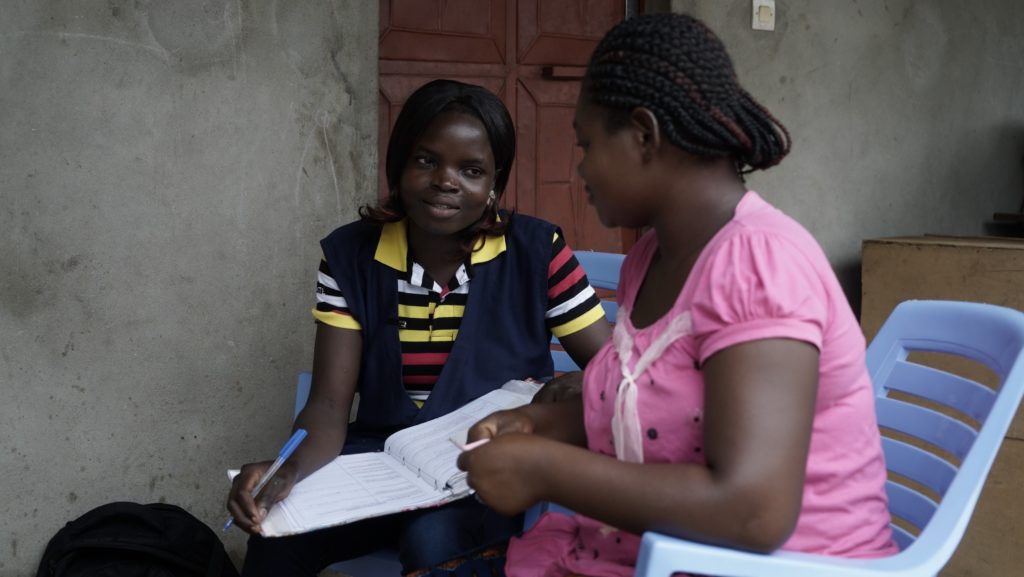Justine puts on her blue vest, a signal to the world that she is a Community Health Worker. She grabs her backpack full of the necessary equipment: a thermometer, gloves, rapid diagnostic tests, and more. As always, she will use this equipment as she goes door to door providing healthcare to mothers and children in her community. Before stepping out of her house, Justine pauses. She remembers that the COVID-19 pandemic is spreading, and she needs to help prepare her community. Justine feels nervous. Although she’s well protected with a mask and takes all of the essential precautions, there is still a hint of uncertainty that makes her think twice. Then she remembers the words of Integrate Health’s program director, Emile Bobozi: “After all we have done up until today in our communities, what will they think if we stay home?” And she feels motivated, knowing that she is able to help her community fight against this pandemic.

Justine steps out of her house and sees her neighbors preparing breakfast around the fires. They wave at her as she follows the path to the center of town. Her neighbors know that today isn’t normal. They see Justine wearing a mask. To her community members, this indicates that something has changed. They know about the current pandemic, and there is heightened fear due to the national precautions already taken.

Community Health Workers like Justine are a lifeline to rural communities during a pandemic. Despite the changes brought on by the pandemic, mothers and children remain at risk of dying from treatable diseases. As healthcare providers, Community Health Workers play an essential role, not only spreading correct information about the pandemic, but also continuing to provide essential, lifesaving care. These activities can help to flatten the curve of the pandemic and keep non-COVID-19 patients out of health centers, lessening the stress on already strained hospitals and clinics.
As Integrate Health’s Community Health Workers have demonstrated, the ability to combat misinformation and continue to provide care amongst uncertainty and fear hinges on one essential element:
Trust.
Justine has noticed that in her community, people are nervous. They are appropriately afraid to let others into their households because of the new restrictions put in place by the government. Justine wonders how this will impact her work. But as she visits her first household, a mother with a newborn, she is welcomed into the family’s courtyard.
Justine is a recognizable face in her community. People know her and trust her. They have observed that since Justine started working as a Community Health Worker a few years ago, fewer children are dying. She has earned their trust, and at this time when they need her most, they eagerly let her continue her work.
After she washes her hands, maintaining distance, Justine begins the conversation. She starts by addressing the families most pressing concerns, providing information about COVID-19. She describes the signs and symptoms of the virus, illustrates how the mother and her family can protect themselves, and tackles any myths that the family has heard around town. As seen during previous epidemics and throughout countries around the world, misinformation can be severely harmful in the prevention of a pandemic. Justine has received training on these topics from Integrate Health and carries education materials straight from the World Health Organization, so she is confident in her advice. The mother listens carefully to what Justine is saying. A few days later, Justine checks on the family and finds that they have installed a handwashing device outside of their home, as have many of the other community members she spoke to throughout the week. A mother recently told her, “We will continue to do these hygienic activities, even after the pandemic.”

Justine is one of countless examples of how Community Health Workers are rising to the challenge of this pandemic, overcoming their own fears and leading with courage despite the uncertainty. This pandemic is highlighting the pivotal role that Community Health Workers play every day and is demonstrating the importance of the strong, trusted relationships they have formed in their communities.
Priorities for the Global COVID-19 Response, a paper published by the members of the Community Health Impact Coalition, further details the essential role that Community Health Workers will play during the pandemic and how best to support countries around the world in deploying and protecting Community Health Workers. The paper reiterates how Community Health Workers must be designated as essential health workers and counted at the national level so that they, too, can receive the essential protection and support that they deserve. Community Health Workers like Justine are an essential component of the response to this crisis and will be critical to efforts to build back stronger health systems capable of withstanding future epidemics.
The fight against COVID-19 in Togo is only beginning, and we do not know where or when it will end. However, we do know that Community Health Workers are critical to slow the spread of COVID-19 and to ensure that essential services continue to reach mothers and babies. We can also take inspiration from the courage demonstrated by Community Health Workers like Justine in the face of uncertainty. At a time when the entire world has been brought to its knees, fearless women like Justine continue to stand up each morning, put on their blue vests, and walk door to door providing healthcare to their neighbors. Community Health Workers are the backbone of the health system now, during a time of crisis, and must be recognized as the foundation for strong health systems long after.
If you would like to read more about Integrate Health’s COVID-19 response, please visit our website.
